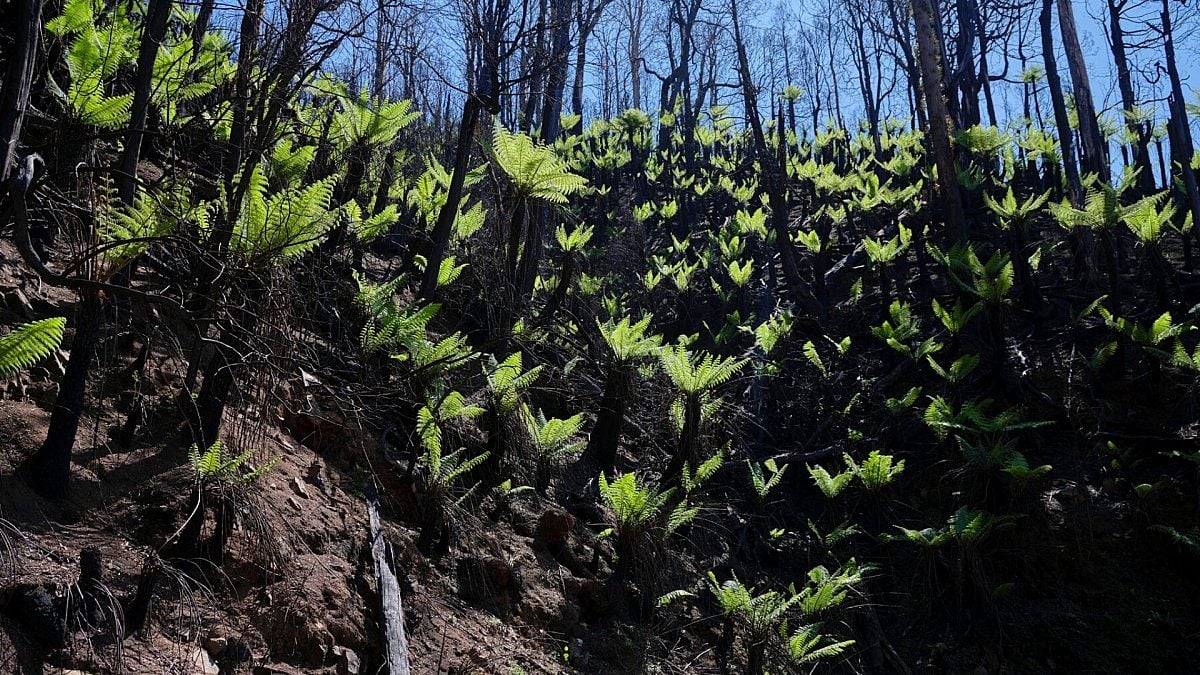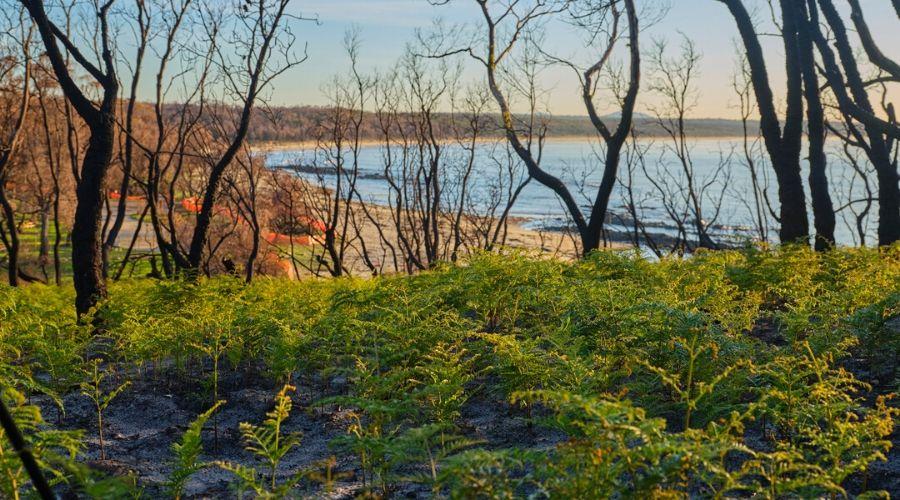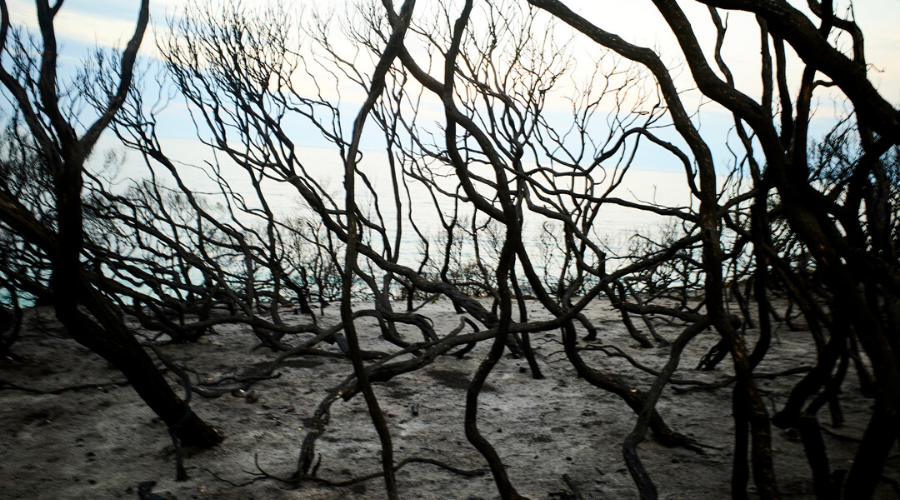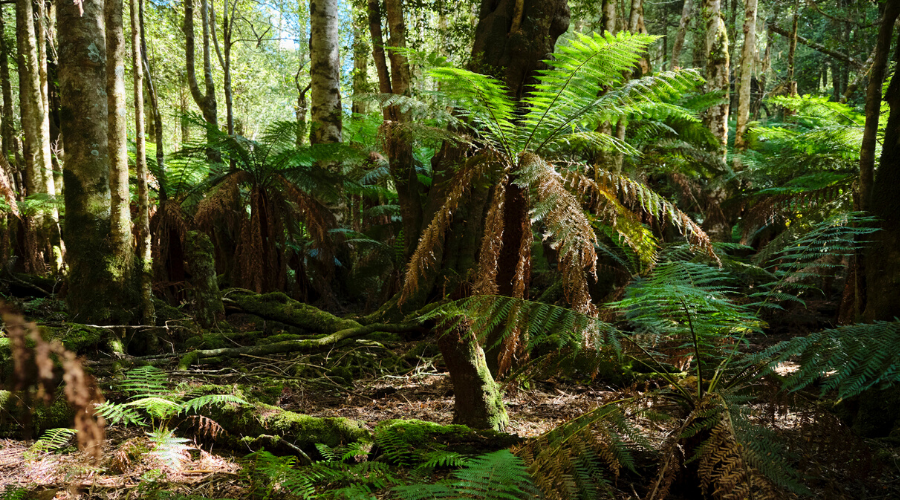
Submission into the bushfires Royal Commission 2020
An overview of recommendations
Communities were severely impacted by the catastrophic summer bushfires and many lives were lost. To assess its response and to better prepare the environment for such events in future, the Government launched the Royal Commission into Natural Disaster Arrangements. In the aftermath of these fires, business as usual cannot continue, as the Wilderness Society outlines in its submission to the Royal Commission.

Why did the Wilderness Society make a submission?
1. The bushfires change everything for nature conservation. Species and ecosystems that were already on the brink were hit hard by fires that were of a scale and impact that hadn’t been seen before. These events have brought further urgency to the need to undertake wholesale policy and funding changes to better protect, manage and restore Australia’s natural values across-the-board.
2. We need to be able to better protect nature from catastrophic mega blazes in the future. Reducing the impact of large fires on key environmental assets and increasing our ability to suppress spot fires in remote bushland areas is critical to maintaining Australia’s biodiversity into the future. Firefighting has a key role to play here.
3. Royal Commissions matter. This is the first Commonwealth Royal Commission in more than 45 years to examine Australia’s management of our natural environment and the only Commonwealth Royal Commission to ever examine any aspect of climate change. In the current era, many other Royal Commissions have succeeded in cutting through hollow partisan rhetoric, accurately diagnosing the scale of problems and soberly weighing up the pros and cons of responses.
Read a bushfires Royal Commission Policy Brief and the Wilderness Society's full submission into the Royal Commission into Natural Disaster Arrangements .

What approach did the Wilderness Society take in writing our submission?
Nature doesn't exist in total isolation where it is only impacted by policies that come from the nature conservation policy drawer. It is impacted by a broad-range of human pressures and the policy levers for environmental outcomes sit right across wide areas of government decision-making.In that vein, our submission seeks to take a helicopter policy view of nature conservation and bushfire management in the context of increasing climate impacts.
We did not seek to replicate the efforts of other environmental or science organisations in fully cataloguing the impacts of the fires. We also did not seek to duplicate the submissions that will come from bushfire-affected communities in relation to the health, safety and economic considerations that will rightly feature prominently in this Royal Commision. When it comes to questions of firefighting, we raise questions we thought should be addressed.
The Wilderness Society deeply respects the extraordinary efforts of those on the frontline—all the firefighters, emergency services workers, parks rangers, health practitioners, vets and community leaders who fronted up everyday in unimaginable conditions to support communities, wildlife and nature.
We acknowledge that as custodians of bushfire-affected lands and waters, Traditional Owners’ experience of the bushfire crisis is unique.
Preliminary Comments
The Wilderness Society made a number of preliminary comments prior to responding to the Commission’s terms of reference. This included:
- Paying tribute to all involved in and affected by the bushfires and the response to them.
- Expressing concern about the use of the term “natural disaster” to discuss human-induced climate change impact.
- Noting that it is impossible to effectively consider climate adaptation responses without considering the full range of climate change scenarios (thus legitimising the Commissioners to reflect upon climate mitigation policy as part of this Royal Commission).
- Noting that the characterisation of “natural disasters” should be extended to other climate change events such as mass forest dieback, kelp forest collapse and mass coral bleaching.
- Noting that the bushfires that provide the impetus and focus for this Royal Commission are part of a larger backdrop of ongoing ecosystem collapse, species extinction and climate crises that must themselves be addressed.
We also noted that while Australia has excellent climate forecasting and adaptation research, the information either fails to reach the political decision-makers, or the information reaches the political decision-maker and they refuse or fail to act upon it. The climate denialism harboured by sections of Australia’s political elite heavily impacts on preparation and response to events such as the 2019/2020 bushfires.

Substantive points raised in our submission
We used the framework outlined by the Commissioners and reflected upon “what worked well”, “what didn’t work well” and “what should change” in response to the fires looking across the areas of preparedness, resilience and adaptation, response, and recovery. The results of this process helped to shape the recommendations outlined in our submission.
Our major recommendations
In the full submission The Wilderness Society made 46 recommendations about what we believe needs to change. The list below is a simplified version highlighting some of the most substantive recommendations:
- That the Commonwealth Environment Minister has a say in the whole-of-government deliberations regarding the seasonal resourcing of remote area firefighting response;
- That a large standing aerial firefighting fleet is established that is large enough to ensure that the majority of remote spot fires can be responded to in extreme fire seasons;
- That the funding formula for aerial firefighting is changed so that the Commonwealth explicitly covers firefighting in remote bushland areas;
- That the Commonwealth established a standing climate disaster recovery fund specifically for recovery activities associated with nature (ie wildlife rescue, invasive species management, ecological restoration);
- That all endangered species recovery plans and world heritage/national heritage management plans are updated to account for climate impacts. And that activities associated with these plans are funded and implemented;
- The Commonwealth should complete the Key Threatening Process for fire regimes and draft and implement the associated Threat Abatement Plan. This Plan should establish a ‘key natural assets’ register to support coordination and prioritisation of fire planning and response with other jurisdictions.
- That any activity impacting on unburnt forest is paused pending further assessments of the impacts of the fires on natural values;
- That Regional Forest Agreements are abandoned and force majeure provisions enacted within wood supply agreements. Or if not, Major Event Reviews are triggered [for Victoria]. Or Major Event Reviews are included in all remaining RFAs and triggered [For NSW, Tas, WA];
- That Australia’s national environmental law is replaced or substantially reformed and institutions established to improve monitoring, enforcement and oversight;
- That state agencies are properly resourced to manage the protected area network including for fire management. And that agency budget allocations are made transparent.
Main top image: Ben Baker.